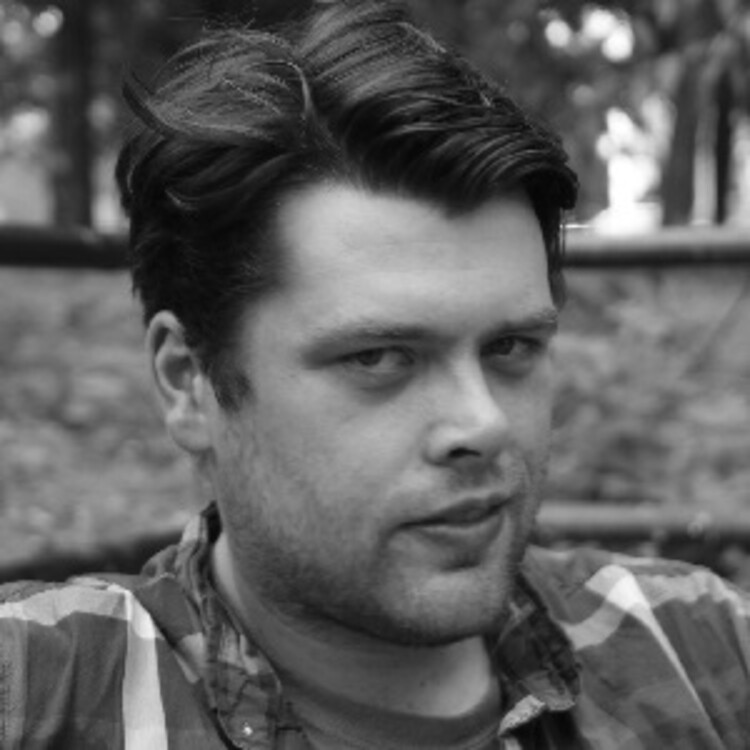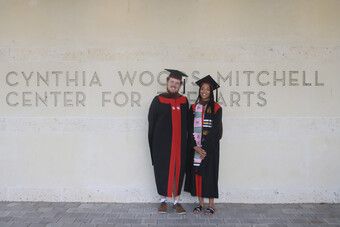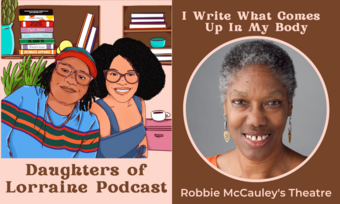Will Somebody Just Tell Me What a Dramaturg is?
Midway through orientation week—awash in a sea of new acronyms and small talk—the seventy-some new students of the Yale School of Drama are herded into a theater to hear speeches from the heads of each of YSD’s nine departments. The unlikely star of this event is Catherine Sheehy, chair of Dramaturgy and Dramatic Criticism, whose easy, wry humor goes a long way to humanizing the mysterious department that students who have never worked with a dramaturg (i.e. 90% of the incoming class) assume is dull and pretentious. Be nice to the dramaturgs, Catherine pleads year after year: none of the challenges of grad school will be as daunting as going to a cocktail party and being asked, “What’s a dramaturg?”
I came to the Yale School of Drama seeking an answer to that question. After trying on nearly every other theatrical discipline, I’d stumbled into dramaturgy during my two years after undergrad. I was working in the literary office of an Off Broadway theater, spending my free time reading friends’ scripts, going to their rehearsals, spewing critiques and opinions at everyone who would listen. Eventually I discovered that what I was doing had a name, and the name was “dramaturgy.” I didn’t know what that was. So, uncertain how to cultivate and apply what seemed like natural aptitude inside an industry still struggling to define “dramaturg,” I went to grad school—seeking definition, discipline, and direction.
Initially attracted to Yale by the emphasis their application materials placed on production and institutional dramaturgy, I was disappointed by how carelessly the program treated this work. The primary focus of the curriculum is the study of dramatic literature and theory, overwhelmingly based in the Western canon, heavy on Romanticism and Modernism, still in wide-eyed thrall of Postmodernism, and complimented each semester by criticism workshops. The faculty members are all great minds and excellent writers, but precious few work regularly as production dramaturgs, and the course work offers little in the way of methodology and technique for practical application. Assignments to shows at the Yale Rep and projects generated by the YSD playwriting, directing, and acting departments are the primary means of investigating production dramaturgy. These collaborations are often challenging, sometimes hostile, especially when all collaborators—actors, director, playwright, stage manager, designers—are students embroiled in their own struggles to synthesize their classroom work and personal artistic goals.
Be nice to the dramaturgs, Catherine pleads year after year: none of the challenges of grad school will be as daunting as going to a cocktail party and being asked, “What’s a dramaturg?”
But this crosspollination with the wider YSD student body makes for a robust laboratory in which to flex practical muscles. Still, most Dramaturgy faculty members are entirely indifferent to their students’ production work, viewing it as extra-curricular activity and ultimately, distraction. The extent of classroom time devoted explicitly to production dramaturgy is a twice-monthly critique session in which the fifteen students discuss the productions on which they are currently working.
To their credit, the faculty consistently accepts students from a range of backgrounds, with varied interests in the theater. These curious and driven students sustain a hearty conversation in hallways and bars about how to apply the knowledge acquired in the classroom. When scheduling allows, students are also able to take classes in the other departments and outside the school that might round out their particular interests. And I would be remiss if I did not sing the praises of the Yale Cabaret, the student-run theater that presents eighteen shows a year, giving dramaturgs the opportunity to develop their own projects in positions not limited to dramaturgy, and to take on producing and curatorial positions as members of each season’s artistic leadership team.
Perhaps the greatest pitfall of an MFA program is its comfort. Whatever frustrations I confronted at Yale, I spent three years sheltered in a bubble of dedicated theater makers, encouraged to question everything except the very fact of theater itself. When I graduated a year ago, that bubble burst and I was thrust back into the real world, where not everyone accepts the premise that theater is probably a good idea. Nearly everyone I know—from YSD and elsewhere—has struggled in this first year to keep the doubt of the real world from transforming into self-doubt. I’ve spent more than one dark night of the soul browsing the internet for law school applications. And I’m not alone in that.
Amidst this mess of confusion that is the first year out, it is difficult to assess the objective value of a graduate degree in theater. Disillusioned with the satisfied separation between academia and theater making, I chose not to pursue a DFA at Yale; instead, I ran back to New York City and re-established myself in the community that I had left behind three years prior. Since graduating, I’ve been paid a whopping $2,050 for work directly related to the field in which I am a master. Not that I’ve been idle—I’ve been constantly juggling projects, dramaturging and producing work I care about with collaborators I love. But this work pays little, if at all, and after three years in the YSD bubble, I’ve returned to the New York with no more clarity around how to channel my skills in an industry that still doesn’t know what to do with dramaturgs. I’ve also spent comparatively little of this year working with colleagues from Yale or capitalizing on contacts within the so-called “Yale Mafia.” Although my most lucrative dramaturgy-related work came directly from a YSD contact, it’s a position I could probably have gotten without an MFA, a fact hammered home when I learned that the woman who did the job before me was the intern I helped hire just before I left my pre-grad school job.
So to an outside observer, it may seem that my grad school experience was a dud. Many friends have insinuated as much to me as they’ve watched me wander aimlessly through this past year, more lost as a master than I was as a bachelor. I’m not so sure. If you’ll pardon the Avenue Q reference, I went back to school with the naïve faith that I would find my purpose there. My goals were vague, which made it difficult to evaluate successes and ameliorate failures. But in three years of grad school I read thousands of pages, wrote hundreds, dramaturged sixteen productions, directed one, and produced twenty five, which puts me much farther down Malcom Gladwell’s 10,000 hour road to mastery than I’d be if I’d stayed in New York. I’m just no more certain where that road is taking me. I’m a much better dramaturg now than I was when I started grad school. But I’ll still panic if you ask me to tell you what that is.












Comments
The article is just the start of the conversation—we want to know what you think about this subject, too! HowlRound is a space for knowledge-sharing, and we welcome spirited, thoughtful, and on-topic dialogue. Find our full comments policy here
I am doing the dramaturgy work in one of the best Chinese theater right now. This year, we are going to produce The Mid Summer Night's Dream. I have been confused for a year more. After this production, I made up my mind that I want to become a dramaturgy. However, I plan to choose Yale School, but as seen your experience, I didn't know whether it is a good choice. In particularly, I didn't want to get stuck in the western rule of theater, instead, I want to develop Asian theater more. So... I am lost after reading your experience.
Canon, not cannon.
Hi Elliott. I might have an answer for you. When I do the lecture on dramaturgy in the Intro to Theatre class at the University of Evansville (where all productions have dramaturgs), I used to ask the students to give me a one sentence definition of my job. I don't do that anymore because no one could possibly trump the one I got a few years ago: A dramaturg is a badass.
But in all seriousness, after twenty years of asking myself many of the same questions you ask here, I usually return to Geoff Proehl's observation that dramaturgy is a sensibility.
As you well know, dramaturgy requires flexibility and the creative desire to connect various impulses. I have found that dramaturgs are shape shifters, and because of that, the ambiguity of our identity actually enhances our ability to do our job well. When I practice dramaturgy, I don't change who I am. I embrace it. I like the challenge of jumping into a project and radically re-envisioning how I may or (perhaps even better) may not fit in.
Go to Germany. Every little theatre there has an official Dramaturg position, with somewhat more responsibility than in the US, and often directed toward theatre, opera, and dance at each Stadtheater. It is a valued occupation there.